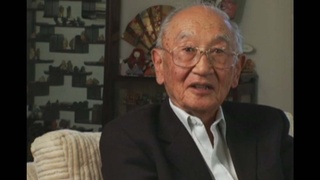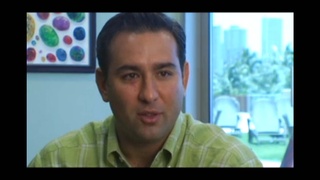Interviews
Education in camp
But the real problem with school was [it was] so bad. At least from my standpoint, it was so bad—so poor. It really began to get very demoralizing, because you realize you weren’t getting an education. We said, gee, we ought to have a class in this. We ought to have a class in that, and so forth, and try to figure out how we could get this class. It was just a mess. And a lot of people suffered from that when they went to college, and stuff like that. But I was very fortunate to go to the University of Chicago because they had sort of remedial classes. If you didn’t know anything, they’d catch you up on it. So I was very lucky, I think. But, if they don’t have that kind of program in the college, it was pretty bad, because there [were] just a lot of gaps. I didn’t realize the gaps existed, until I went to college. And I said, geez, I don’t know anything about humanities. Haven’t read very much or seen any plays or anything—haven’t listened to any music. (laughs) So I just felt real ignorant.
Date: June 12, 1998
Location: California, US
Interviewer: Darcie Iki, Mitchell Maki
Contributed by: Watase Media Arts Center, Japanese American National Museum
Explore More Videos

Parents expected to be taken by the FBI
(1919-2020) Member of the 1800th Engineering Battalion. Promoted Japan-U.S. trade while working for Honda's export division.

525 Quartermaster Corps
(1919-2020) Member of the 1800th Engineering Battalion. Promoted Japan-U.S. trade while working for Honda's export division.

Fort McClellan soldiers
(1919-2020) Member of the 1800th Engineering Battalion. Promoted Japan-U.S. trade while working for Honda's export division.


Working tirelessly after the war (Japanese)
(1928 - 2008) Drafted into both the Japanese Imperial Army and the U.S. Army.








Memories of Poston
(b. 1930) Half Japanese and grew up in both Japan and the United States.

Arriving at Poston
(b. 1930) Half Japanese and grew up in both Japan and the United States.

Incarceration, Deportation, and Lawyers
(1938-2020) Japanese American attorney and civil rights activist
